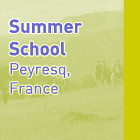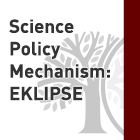Multi-Site Research: Call 3, 2018-19 (MSR-3)
About ALTER-Net's MSR activities
Since 2006, ALTER-Net has coordinated and (co-)financed diverse multi-site research (MSR) activities. The aim of these activities is to demonstrate that simple but diverse research can be simultaneously conducted across Europe with a significant added value due to its pan-European character. Reports of these previous activities are available here.
What is “Multi-Site Research”?
ALTER-Net Multi-Site Research (MSR) projects are research initiatives in which a shared methodological approach is used to study issues that can be expected to have different outcomes according to geographical differences. These can be of a biogeographical nature, but e.g. also socio-economical, political, ecological or other differences between European regions can be the reason for conducting the research project. In this way, MSR projects contribute to the network's objectives. MSR initiatives are currently designed to enable not only experimental ecological research in the field but also other types of research activities relevant to the ALTER-Net goals (e.g. socio-ecological research using interview techniques, participatory methods, etc.). In this way, classical field-ecological studies can be performed, but the programme is also open for socio-ecological research and studies addressing eco-political issues, ecosystem services, nature-based solutions, etc. Given the pan-European distribution of the ALTER-Net consortium partners, MSR potentially allows the inclusion of a wide range of geographically different situations in Europe.
The ALTER-Net MSR initiative opens possibilities for question-focused research including fundamental research issues, as well as on solution-oriented projects. It aims at innovative projects that address emerging pan-European topics that promote network activity and cooperation.
General goals of ALTER-Net to which MSR activities should contribute
ALTER-Net's main objective is to develop lasting integration amongst its partner institutes, and others, all of whom are involved in biodiversity research, monitoring and/or communication. ALTER-Net is building upon a number of activities developed during the first (EU-funded phase), including:
- Identification of common research priorities and development of a common research program
- Further development of the LTER-Europe network of Long-Term Ecosystem Research sites (LTER) and Long-Term Socio-Ecological Research platforms (LTSER) (ALTER-Net was instrumental in developing this major European research infrastructure)
- The ALTER-Net Summer School, which has been providing training for young researchers in inter-disciplinary approaches to biodiversity and ecosystems research since 2006
- Establishment of a vibrant inter-disciplinary research community, which ALTER-Net has championed and nurtured, and actively supports through topical workshops and conferences
- Communication and knowledge transfer at interfaces such as scientist-to-scientist, scientist-to-policymaker and with the general public
- Support to the EU LifeWatch project (developing the infrastructure for sharing biodiversity data), of which ALTER-Net is a founder member
- Development of a common data sharing policy.
Budget and budgeting guidelines
The financial reward is a maximum of €20 000 per MSR project per year. MSR project financing by ALTER-Net can last for three years at the most. Within the awarded budget, ALTER-Net will only finance operational and/or traveling costs, potentially including both costs of ALTER-Net and non-ALTER-Net member institutes or individuals. Hence, in all cases, input of personnel is considered as in-kind contribution for both ALTER-Net and non-ALTER-Net members.
Prioritization
Priority criteria for selection of a proposal are:
- relevance, novelty and formulation of the research questions,
- feasibility of the research set up,
- expectable quality of scientific outcomes,
- level of added value to the ALTER-Net goals,
- number of participating ALTER-Net partners.
Key dates
- Deadline for submitting proposals: 30 April 2018
- Short list by ALTER-Net Management Board: 15 May 2018
- Decision by ALTER-Net Council: 31 May 2018
- Earliest start of the project: 01 July 2018
- Period for project: 1 to max. 3 years depending on the type of research
Guidelines for proposals
- Please send your proposal to Tessa van Santen (ALTER-Net Secretariat)
- Please follow the template when writing your proposal. The proposal should be no longer than six pages, excluding references.
- The call is open for ALTER-Net consortium partners but non-ALTER-Net partners can join a MSR project.
- Any proposal has to be coordinated by an ALTER-Net partner.
- Participation of as many as possible, but relevant ALTER-Net partners is an evaluation criterion.
- ALTER-Net highly recommends the use of research sites at or near LT(S)ER sites or platforms (http://www.lter-europe.net), but other research sites, platforms or locations are allowed. For details of LTER sites and LTSER platforms, please consult the DEIMS database.
Links
Contact
- Tessa van Santen (ALTER-Net Secretariat)








